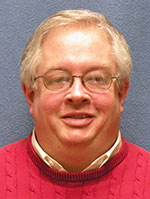Reflection / Sean Gallagher
Indy 500 runner-up shows that falling short of glory can fuel ultimate success
 Alexander Rossi should have won the 103rd Indianapolis 500 on May 26 at the Indianapolis Motor Speedway.
Alexander Rossi should have won the 103rd Indianapolis 500 on May 26 at the Indianapolis Motor Speedway.
He poured his heart and soul into his effort to win the race. All day long, he fought hard to keep up with pole sitter Simon Pagenaud, who dominated much of the race, leading 116 of its 200 laps.
During a pit stop on lap 138, Rossi’s crew struggled to fuel his car, costing the California driver several places on the track. As he waited and waited for the problem to be resolved, an obviously frustrated Rossi banged his fist on his steering wheel.
Back on the track, Rossi fought hard, eventually making his way back to the front.
His passion came through later in the race when Oriol Servia, who was a lap down, made it difficult for Rossi to pass, nearly forcing him into a wall. As he finally made it past the Spanish driver, Rossi, driving close to 230 miles per hour down the front stretch, took a hand off his steering wheel to shake a fist at Servia.
With 13 laps left, Rossi was finally able to duel it out with Pagenaud. The pair traded the lead several times. Rossi willed his way past the dominant Pagenaud for the lead on lap 197.
Had he been able to hold on to the top spot and cross the finish line first on lap 200, it would have been an Indy 500 storybook ending among the best of them.
Three years after coming out of nowhere to win the 100th Indy 500 as an unheralded rookie, Rossi this year was an established driver, racing with passion and making daring passes to compete with Pagenaud, who clearly had the best car in the field.
What a great story it would have been if he had won. … But he didn’t.
Pagenaud made a pass for the lead on lap 198, held on and crossed the yard of bricks two-tenths of a second ahead of Rossi.
With Pagenaud celebrating his victory nearby, a dejected Rossi climbed out of his car, telling a reporter that “unfortunately, nothing else matters here except winning.”
Nothing else matters except for winning for us as Christians, too. Except that it’s not here where we win. It’s in heaven.
God blesses each of us with a unique set of gifts and talents. And he created us, too, with a desire to achieve greatness.
On this side of heaven, though, we often fall short of the greatness for which we strive. And failing to make our dreams a reality is all the more difficult when their fulfillment seems to be within our grasp.
“It was right there and then it wasn’t, and I won’t get over that,” Rossi said moments after the race. “I don’t want to get over that.”
Maybe God allows us at times to fall short of our dreams of passing glory here and now to ultimately fuel our desire to share in his unending glory in heaven.
Still, knowing that this greatest of prizes is there to be received as a gift from God can give us little consolation in the initial wake of disappointment.
Frustration and dissatisfaction can push out thoughts of heaven as we live in a world where fulfillment is defined as being number one by beating out our rivals.
But God defines fulfillment in a radically different way. St. Teresa of Calcutta succinctly put it this way: “God has not called me to be successful. He has called me to be faithful.”
Alexander Rossi winning the 103rd Indianapolis 500 would have been a story to remember for a long time. Remaining faithful to God with the help of his grace through the failures that will inevitably come our way in life is a story to be remembered for eternity.
(Sean Gallagher is a reporter and columnist for The Criterion.) †
 Alexander Rossi should have won the 103rd Indianapolis 500 on May 26 at the Indianapolis Motor Speedway.
Alexander Rossi should have won the 103rd Indianapolis 500 on May 26 at the Indianapolis Motor Speedway.